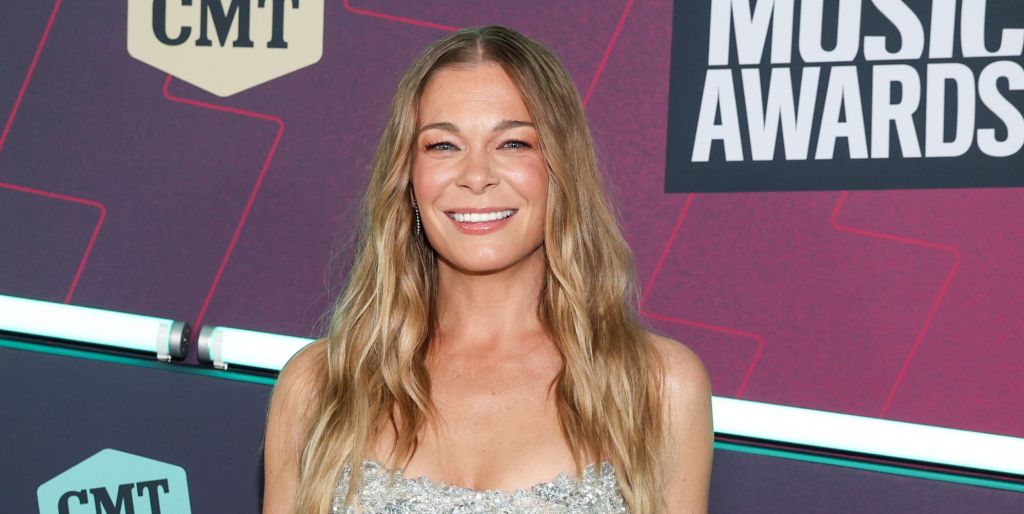LeAnn Rimes explains why she often cries on The Voice UK

LeAnn Rimes is a country singer and vocal coach on ‘The Voice UK’. (Getty)
90s icon and Coyote Ugly star LeAnn Rimes is now a judge on The Voice UK and is often seen overcome with emotion on the show.
During a recent launch event for the show, Rimes said that she struggles to hold back tears – particularly when filming the blind auditions.
In fact, crying might be a good thing for prospective contestants: “When it touches me and I’m crying, I am turning [my chair]. It can get really emotional on set.”
On a recent episode of the The Voice UK (September 7), one contestant’s performance also brought her to tears.
28-year-old hopeful Deb Orah clearly impressed Rimes as she very quickly hit her buzzer and turned around for Orah.
Following Orah’s performance, Rimes said: “I’m crying! You moved me to tears! That was beautiful. Your voice is so stunning, you really did move me to tears. I love that you chose that song, the power and the feeling. You just blew me, blew me, blew me away.”
Orah is a mother of two and chose to sing ‘His Eye Is On The Sparrow’ by Lauryn Hill and Tanya Blount for her audition.
Rimes enticed Orah to join her team by appealing to her sense of “girl power” as Rimes is currently “the only woman” on the panel. The other judges also tried to sway her to their teams but Orah did in the end choose Rimes’ team.
The singer signed up for the series this year because she wanted to “give people creative criticism” rather than “shatter their hopes and dreams”, saying that people “went too far back in the day” on previous reality talent shows.
LeAnn Rimes has always been a big advocate for the LGBTQ+ community
Rimes has advocated for the LGBTQ+ community many times in the past. Back in 2011, Rimes said she had a gay uncle who inspired her to speak out on LGBTQ+ issues after finding fame.
She said: “I believe in equality. Everybody should be treated exactly the same way no matter what their race, no matter what their sexuality. I’ve learned from everything I’ve gone through and from being in this business for so long and being judged since I was 13. That was my biggest lesson in life: not to judge others. You’ve never walked in their shoes, you don’t know where they’re coming from, and you don’t know their story.”
Rimes’ uncle, who she said was very close to her, passed away from AIDs when she was 11 – just two years before she found fame with her album Blue. The “early-on experience” of knowing someone in the LGBTQ+ community and mourning his death made her “want to get involved even more”.
Rimes also has many LGBTQ+ fans, particularly after her role in Coyote Ugly and the release of the song ‘Can’t Fight The Moonlight’. She also had friends in the country music genre – historically dominated by white, cis-het people – who were “gay and not out”, and she wanted to help them and honour the memory of her uncle.
“I always wanted to give voice to people that I felt didn’t have one at the time, especially to my uncle because he was from the South, not completely accepted and pretty lonely. It was so incredibly sad to me. I always wanted to give him a voice,” Rimes told Gay Times in 2023.

Most recently, Rimes and fellow The Voice UK coach Tom Jones told PinkNews that The Voice UK is a great format for minority groups such as queer or disabled performers because they are judged solely on their talent and not on their appearances.
“One of the things with the show is that we really are listening to the talent, and it’s not about image. That’s what draws me to [the] show, because we live in a world where everything is about image [while] talent is so far down on the list. We don’t care what you look like, we just want you to move us,” she said.
“Then, when we turn around, sometimes we’re blown away [because] the voice doesn’t really match the person, and it happens often. That’s what’s so great about the show: everyone is welcome. It doesn’t matter who you are, what you look like.”
She added that The Voice UK embraces people being authentic about who they are and wouldn’t treat LGBTQ+ performers as a “joke” like many other talent contests in recent years that left those artists with limited success.
How did this story make you feel?

